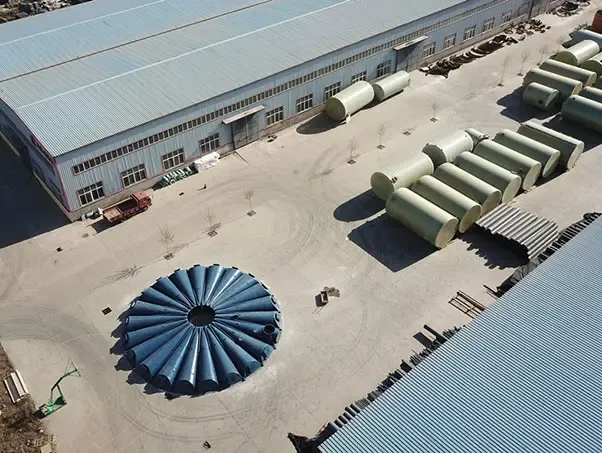
-
 Afrikaans
Afrikaans -
 Albanian
Albanian -
 Amharic
Amharic -
 Arabic
Arabic -
 Armenian
Armenian -
 Azerbaijani
Azerbaijani -
 Basque
Basque -
 Belarusian
Belarusian -
 Bengali
Bengali -
 Bosnian
Bosnian -
 Bulgarian
Bulgarian -
 Catalan
Catalan -
 Cebuano
Cebuano -
 China
China -
 China (Taiwan)
China (Taiwan) -
 Corsican
Corsican -
 Croatian
Croatian -
 Czech
Czech -
 Danish
Danish -
 Dutch
Dutch -
 English
English -
 Esperanto
Esperanto -
 Estonian
Estonian -
 Finnish
Finnish -
 French
French -
 Frisian
Frisian -
 Galician
Galician -
 Georgian
Georgian -
 German
German -
 Greek
Greek -
 Gujarati
Gujarati -
 Haitian Creole
Haitian Creole -
 hausa
hausa -
 hawaiian
hawaiian -
 Hebrew
Hebrew -
 Hindi
Hindi -
 Miao
Miao -
 Hungarian
Hungarian -
 Icelandic
Icelandic -
 igbo
igbo -
 Indonesian
Indonesian -
 irish
irish -
 Italian
Italian -
 Japanese
Japanese -
 Javanese
Javanese -
 Kannada
Kannada -
 kazakh
kazakh -
 Khmer
Khmer -
 Rwandese
Rwandese -
 Korean
Korean -
 Kurdish
Kurdish -
 Kyrgyz
Kyrgyz -
 Lao
Lao -
 Latin
Latin -
 Latvian
Latvian -
 Lithuanian
Lithuanian -
 Luxembourgish
Luxembourgish -
 Macedonian
Macedonian -
 Malgashi
Malgashi -
 Malay
Malay -
 Malayalam
Malayalam -
 Maltese
Maltese -
 Maori
Maori -
 Marathi
Marathi -
 Mongolian
Mongolian -
 Myanmar
Myanmar -
 Nepali
Nepali -
 Norwegian
Norwegian -
 Norwegian
Norwegian -
 Occitan
Occitan -
 Pashto
Pashto -
 Persian
Persian -
 Polish
Polish -
 Portuguese
Portuguese -
 Punjabi
Punjabi -
 Romanian
Romanian -
 Russian
Russian -
 Samoan
Samoan -
 Scottish Gaelic
Scottish Gaelic -
 Serbian
Serbian -
 Sesotho
Sesotho -
 Shona
Shona -
 Sindhi
Sindhi -
 Sinhala
Sinhala -
 Slovak
Slovak -
 Slovenian
Slovenian -
 Somali
Somali -
 Spanish
Spanish -
 Sundanese
Sundanese -
 Swahili
Swahili -
 Swedish
Swedish -
 Tagalog
Tagalog -
 Tajik
Tajik -
 Tamil
Tamil -
 Tatar
Tatar -
 Telugu
Telugu -
 Thai
Thai -
 Turkish
Turkish -
 Turkmen
Turkmen -
 Ukrainian
Ukrainian -
 Urdu
Urdu -
 Uighur
Uighur -
 Uzbek
Uzbek -
 Vietnamese
Vietnamese -
 Welsh
Welsh -
 Bantu
Bantu -
 Yiddish
Yiddish -
 Yoruba
Yoruba -
 Zulu
Zulu
Exploring Applications and Benefits of FRP Field Tanks in Modern Industries
Understanding FRP Field Tanks A Comprehensive Overview
Fiberglass Reinforced Plastic (FRP) field tanks have become increasingly popular in various industries due to their durability, lightweight properties, and resistance to corrosion. These tanks serve as essential storage solutions for liquids such as water, chemicals, and fuels. This article aims to delve into the advantages, applications, and considerations associated with FRP field tanks.
Advantages of FRP Field Tanks
One of the most significant advantages of FRP field tanks is their exceptional resistance to environmental factors. Traditional storage options, such as metal tanks, can corrode over time when exposed to harsh weather conditions or aggressive chemicals. In contrast, the non-corrosive nature of FRP allows these tanks to maintain structural integrity and prolong service life, which translates to lower replacement costs and reduced maintenance.
Moreover, FRP tanks are lightweight compared to their metal counterparts. This characteristic makes transportation and installation considerably easier, requiring less effort and lower transportation costs. Their lightweight design allows for flexibility in various installation sites, whether on land or elevated platforms.
Another noteworthy benefit is the versatility of FRP materials. The composition of fiberglass allows for customization in terms of size, shape, and color, making it easier to meet specific project requirements. This adaptability is particularly advantageous for industries that require specialized tank designs to accommodate unique liquid properties or storage conditions.
Applications of FRP Field Tanks
The applications of FRP field tanks are varied and widespread, spanning multiple sectors. In the agricultural industry, these tanks are often used for storing fertilizers and pesticides, thanks to their chemical resistance and durability. They can also serve as water storage solutions for irrigation systems, ensuring a reliable water supply for crops.
frp field tank

In the oil and gas sector, FRP tanks are increasingly utilized for storing fuels and other hydrocarbons. Their ability to withstand harsh environments, such as those found in offshore drilling sites, makes them a preferred choice. Moreover, with the growing emphasis on environmental regulations, the use of FRP tanks can help minimize the risk of leaks and spills, thereby reducing environmental impact.
Another critical application of FRP field tanks is in the wastewater treatment industry. These tanks can effectively store and treat various types of wastewater due to their chemical resistance and ability to handle fluctuating temperatures. Their design can be modified to suit different treatment processes, making them an essential component in modern wastewater management systems.
Considerations When Choosing FRP Field Tanks
While the benefits of FRP field tanks are significant, there are essential considerations to keep in mind when selecting the appropriate tank for specific needs. First and foremost, it is crucial to assess the compatibility of the FRP material with the stored liquid. Some chemicals may react poorly with fiberglass, leading to degradation or failure of the tank.
Additionally, potential buyers should consider regulatory requirements and industry standards that may affect tank specifications. Local laws may dictate certain design or material characteristics to ensure safety and compliance. Conducting thorough research and consulting with experts can help navigate these regulations effectively.
Finally, cost is a vital factor in decision-making. While FRP tanks can offer long-term savings due to their durability and low maintenance needs, the upfront costs may be higher compared to traditional options. Evaluating the total cost of ownership over the tank's lifespan can provide a more accurate financial picture.
Conclusion
In summary, FRP field tanks present numerous advantages that make them a valuable option for a variety of storage needs. Their resistance to corrosion, lightweight nature, and versatility make them ideal for different industries, from agriculture to oil and gas. However, careful consideration of material compatibility, regulatory compliance, and cost is essential when selecting the right tank. Investing in high-quality FRP tanks can lead to long-term benefits, ensuring reliable and safe storage solutions.









